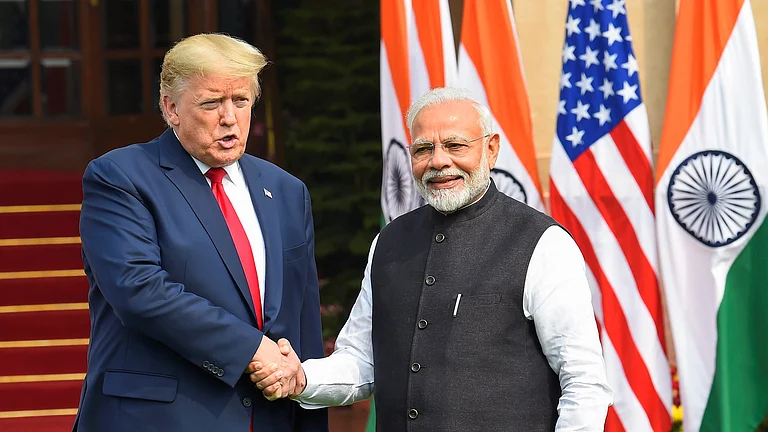Railway Minister Ashwini Vaishnaw on Thursday said the implementation of the automatic train protection system known as "Kavach" has witnessed good progress across the rail network.
The Kavach system, developed by the Research Designs and Standards Organisation (RDSO) in collaboration with private players, can apply brakes automatically in case of an emergency when a train driver fails to act in time. The Indian Railways is in the process of implementing the system across its network to enhance operational safety.
Talking to reporters at the Rail Bhavan here, Vaishnaw said Kavach has five components -- optical fibre work, Kavach towers, data centres at stations, trackside equipment and loco Kavach.
"Good progress has been made in installing all these five components. By the end of December 2023, optical fibre cables were laid on 3,040-km routes, along with the installation of 269 Kavach towers. Data centres are ready at 186 stations and trackside equipment has been installed on 827-km routes. Besides, loco Kavach has been fitted in 170 locomotives," he said.
"There are three Kavach manufacturers in the country. The approval process for two more manufacturers is under consideration. Since it is a safety system, the approval takes a minimum of two-and-a-half years," Vaishnaw added.
He said while the ATP (automatic train protection) system was introduced and implemented across the world in the 1990s, successive governments in India did not pay any attention to train protection and safety.
"In 2016, the Kavach was approved and its trials were started. It is a safety system for which getting certification is very tough. It requires Safety Integrity Level 4 (SIL 4) certification. Normally, a safety system takes many years to get SIL 4 certification. It took us three years to get an SIL 4 certificate. We got the certification in 2018," Vaishnaw said.
"We faced problems due to COVID-19 in 2020 and 2021. We expedited its implementation from 2021 onwards," he added.


























